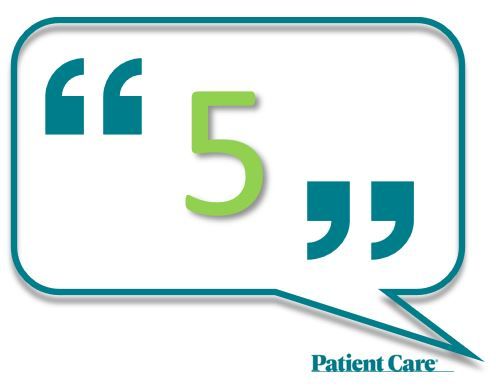- Clinical Technology
- Adult Immunization
- Hepatology
- Pediatric Immunization
- Screening
- Psychiatry
- Allergy
- Women's Health
- Cardiology
- Pediatrics
- Dermatology
- Endocrinology
- Pain Management
- Gastroenterology
- Infectious Disease
- Obesity Medicine
- Rheumatology
- Nephrology
- Neurology
- Pulmonology
Friday's 5 Quotes for Primary Care 4-28-2023

Each of the quotes that follow is taken from a study reviewed on Patient Care® during the past week and was chosen for the research team’s passion about the clinical implications of their findings and for their potential impact on primary care practice.
©peopleimages.com/AdobeStock

Despite concern about stroke (50%) and fear of bleeding risk (60%) approximately 65% of patients were open to reconsideration of OAC therapy. However, only 27% of their treating physicians would reconsider. Even for patients judged appropriate for OAC by an expert panel, less than half of physicians would reconsider. The authors posit a number of reasons for the divergence, most related to optimal patient selection, and highlight “a need for additional education on guideline recommendations.”
©wowow/Shutterstock.com

“The ability of surgery to control and even improve fibrosis associated with NASH is of particular clinical relevance given the fact that fibrosis is the main predictor of liver complications and cardiovascular mortality and morbidity in NASH. These findings further support the use of bariatric-metabolic surgery in people with metabolic diseases. NASH should be considered as an important factor in decision making around prioritisation of surgery in people with obesity and type 2 diabetes.”
Courtesy Harvard Medical School

The new medications that are called antiobesity medications, or AOMs. So we get away from the term "weight-loss agents," which really paints a different picture. AOMs are approved and indicated by the FDA for anyone with obesity which is defined as a BMI over 30 or over 27 with a serious obesity-related complication. BMI greater than 25 is overweight. Patient education needs to focus on how antiobesity medications support a healthy lifestyle and that they are a long-term chronic treatment for obesity."
©AS Photo Project/Adobe Stock

“The current one-size-fits-all policy to screen the entire female population from a certain age may be neither fair and equitable nor optimal...It is an example of what happens when race and ethnicity are not considered in guidelines. This may pose a significant risk for greater harm to a group already at increased risk.”
©decade3D/Adobe Stock

“Our study showed that sleeve gastrectomy in adolescents and young adults decreases bone strength and BMD of the lumbar spine 12 months after surgery compared with nonsurgical controls.” More specifically, analysis of biomechanical CT parameters revealed decreases in bone strength, bending stiffness, and in mean and trabecular volumetric BMD among participants in the surgical vs nonsurgical groups (P<.001 for all).
